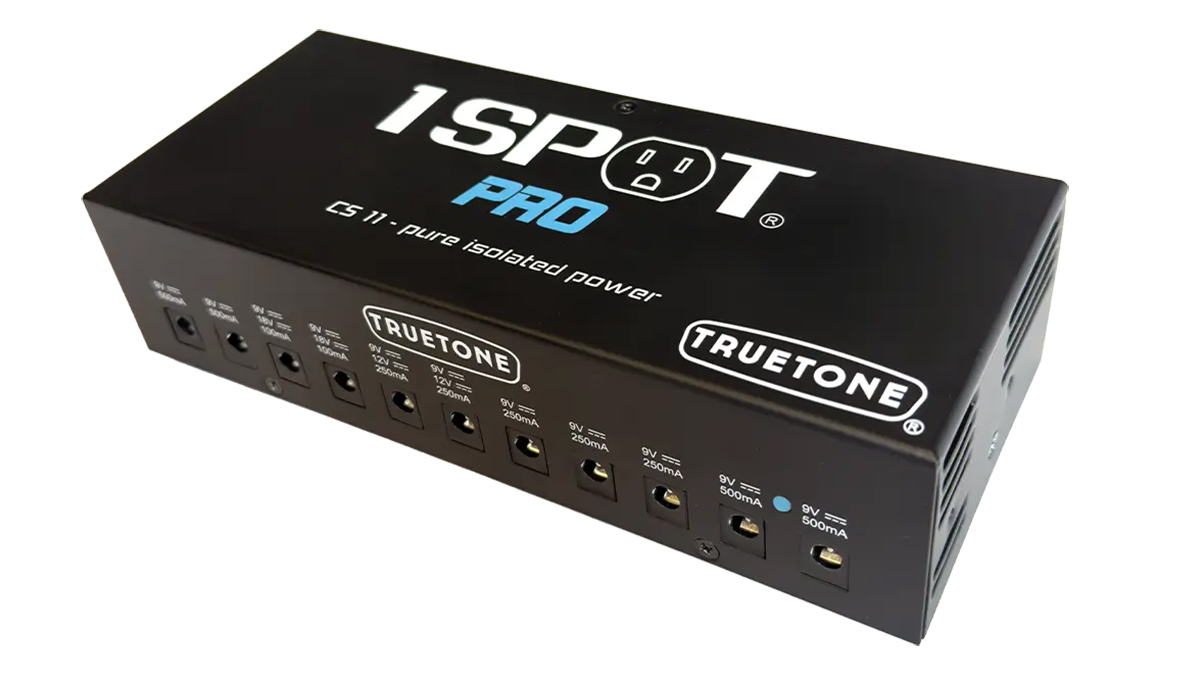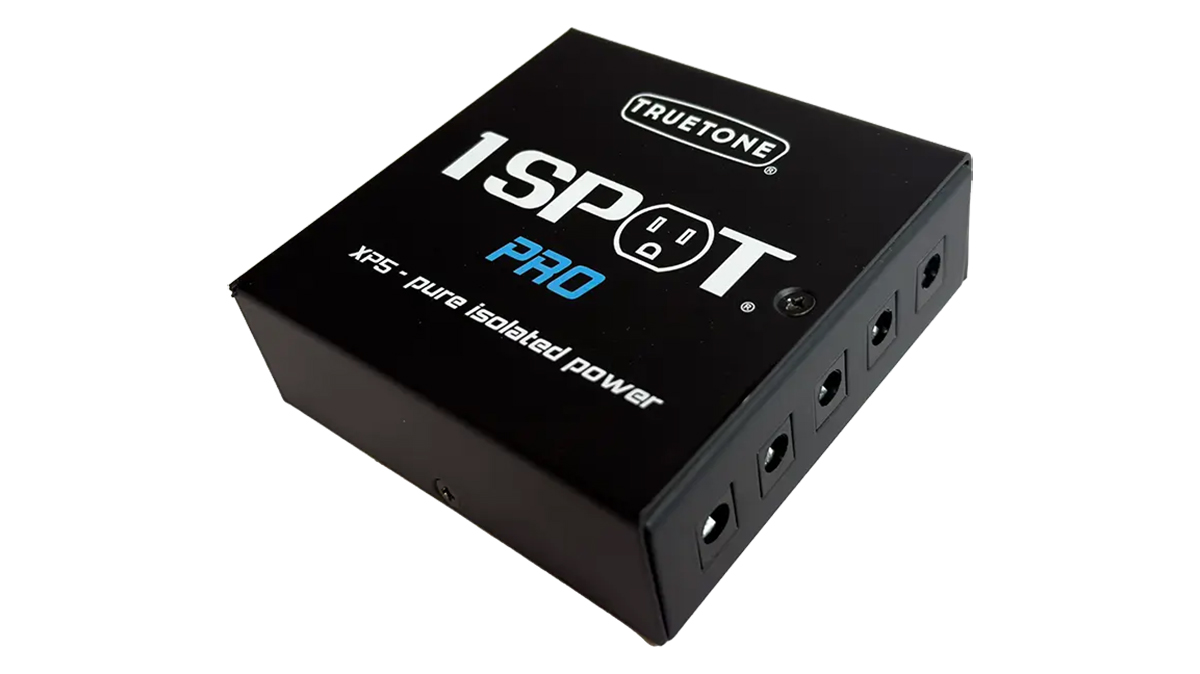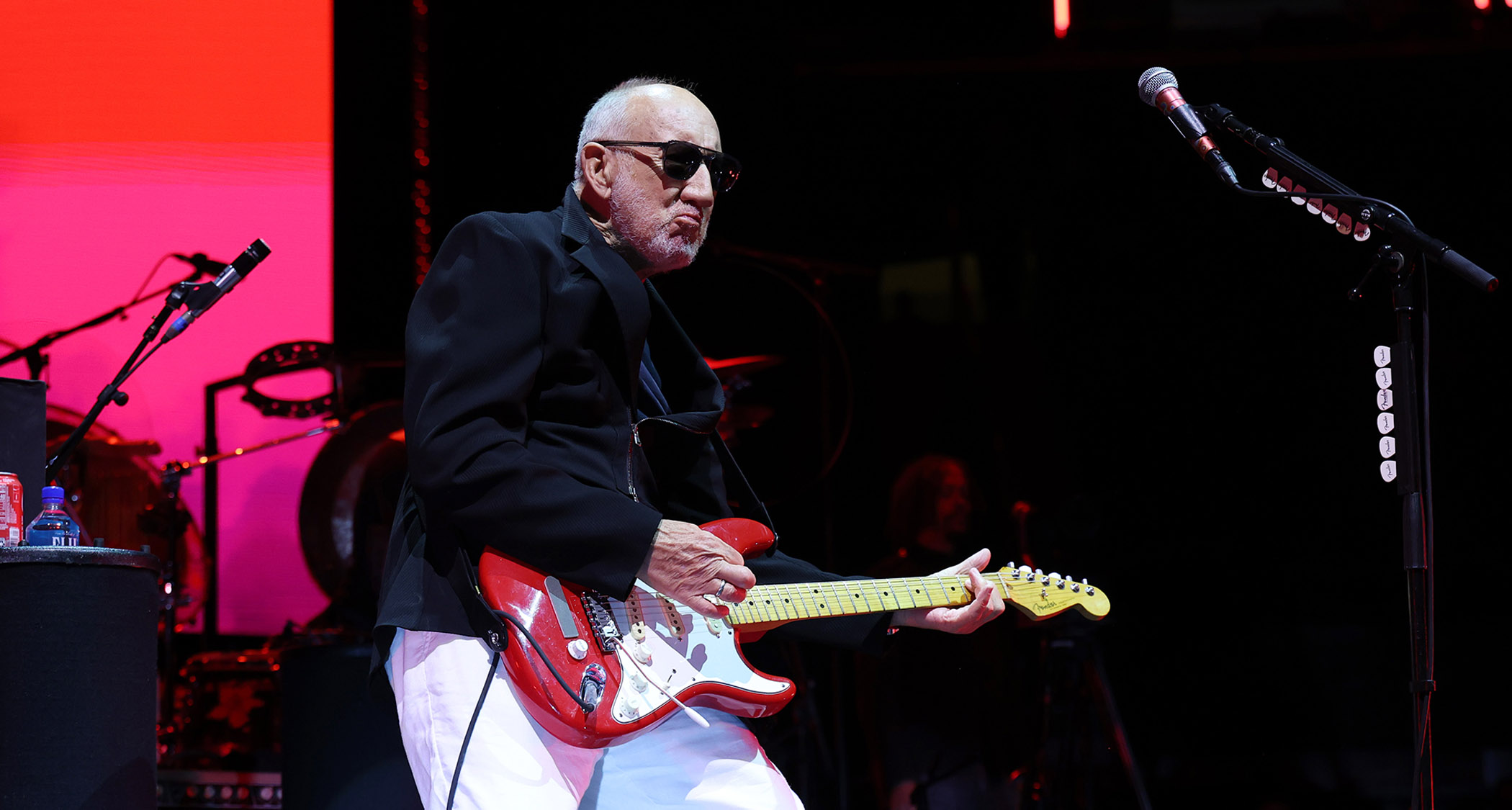Sponsored by Truetone
“Our new power supplies are about as state-of-the-art as you can get”: How Truetone’s game-changing 1 Spot Pro series is continuing to provide pro pedalboard power to the masses with the new CS11 and XP5


While it’s not always a guarantee, the vast majority of electric guitar players have a pedalboard of some sorts. Whether it be a few basic stompboxes strung together in a no-nonsense rig, or a huge kaleidoscope of analog and digital designs wired in a complex signal chain, most players like to dabble in the world of effects pedals.
The problem with pedals, though, is they require power – and, if you want your ’board to be operating at a professional, reliable level, you’re most likely going to need an isolated supply that can deliver noise-free power to each individual unit.
Since its formation in 1995, Truetone has been at the forefront of delivering such products to guitarists, and through its hugely popular 1 Spot Pro series of pedalboard power supplies, has helped players build pro-grade pedalboards.
Indeed, we consider the Truetone 1 Spot Pro CS12 to be the best all-round power supply you could hope to buy.
Now, Truetone has built on the CS12’s legacy by unveiling the new CS11 – as well as the equally powerful XP5 and XP5-PS – to expand its powerhouse stable of world-famous power supplies.
“For a long time, our slogan was ‘Real Tone for Real People,’” firm founder Bob Weil tells Guitar World. “The mission nowadays is to provide the most quiet, powerful and cost effective power supplies available to musicians. It’s still the same idea as Real Tone for Real People, but it’s more like Real Power for Real People.”
Like all Truetone power supplies, the CS11 and XP5 both offer studio-grade, silent power for players, offering all-isolated outputs, and quiet, dependable power.
All the latest guitar news, interviews, lessons, reviews, deals and more, direct to your inbox!
That, of course, is all expected, but in a step that is a bit more new, the CS11 and XP5 serve as the firm’s first expandable 1 Spot Pro models, meaning they can be chained with one another to further expand your overall output when you inevitably start buying more pedals.
As the name suggests, the CS11 offers 11 outputs that can all be 9Vdc. Two of those outputs are switchable 9/12Vdc, and two are 9/18Vdc, meaning the majority of pedals will be covered. The XP5 is very small and light, offering five additional 9Vdc outputs.
The XP5, it should be mentioned, is powered directly from the CS11 with an included DC cable, while the XP5-PS arrives with an external adaptor for standalone operation.
“Generally, we tend to under-promise and over-deliver,” Weil says of the benefits of Truetone. “For example, with our 1 Spot Pro line, each of the outputs can power far more than the output label states.
“The Truetone 1 Spot Pro power supplies are also studio-quiet. They add zero noise to your signal and keep all your pedals completely isolated so there is no interference between them.”

After all, a near-noise-free operation is an important aspect of pedalboard power supplies, and something that many players should consider. However, while Weil understands all these benefits of using isolated power supplies, he recognises that not all guitarists will need them – it all depends on the type of rig you’re running.
“Some do and some don’t,” he replies when asked why players need isolated power supplies. “There have been a lot of “experts” over the years who have insisted that you must use an isolated power supply for your pedals. Those experts usually sell isolated power supplies.
“If you’re a guitarist who only uses analog pedals, like distortion, overdrive, compression, boost, chorus, etc., you probably don’t need an isolated power supply unless you want one. I’ve seen our original 1 Spot and daisy-chain cables on some very big stages over the years, quietly powering an all-analog pedalboard.”
For others, though, using an isolated power supply such as the CS11 is a necessity, with Weil adding, “You run into noise with digital multi-effects and modeling pedals, like those from Line 6, Strymon, Eventide. If you have even one of those on your pedalboard, you definitely need an isolated power supply like a 1 Spot Pro.”
For those who do decide to get a dedicated power supply, they’d be hard pressed to find an option out there that’s better than the Truetone 1 Spot Pro range. When it debuted in 2015, it offered the first-ever multiple output switching power supply for musicians.
“Our new CS11, XP5 and XP8 power supplies are about as state-of-the-art as you can get,” Weil asserts. “For the 1 Spot Pro models, we spent about 3 years trying various new technologies, but settled on a hybrid design using switching power supply technology combined with linear voltage regulators.
“We’re super picky about noise and maximizing power handling, and I think we’ve struck the right balance with all our designs. For the needs of guitarists for the foreseeable future, the 1 Spot Pro models will have you covered.”
The CS11 is available for $219, while the XP5 and XP5-S are available for $99 and $119, respectively. A new XP8-PS is also available now for $149.
Head over to Truetone to find out more.

Matt is the GuitarWorld.com News Editor, and has been writing and editing for the site for five years. He has a Masters in the guitar, a degree in history, and has spent the last 19 years playing everything from blues and jazz to indie and pop. During his GW career, he’s interviewed Peter Frampton, Zakk Wylde, Tosin Abasi, Matteo Mancuso and more, and has profiled the CEOs of Guitar Center and Fender.
When he’s not combining his passion for writing and music during his day job, Matt performs with indie rock duo Esme Emerson, and has previously opened for the likes of Ed Sheeran, Keane, Japanese House and Good Neighbours.


